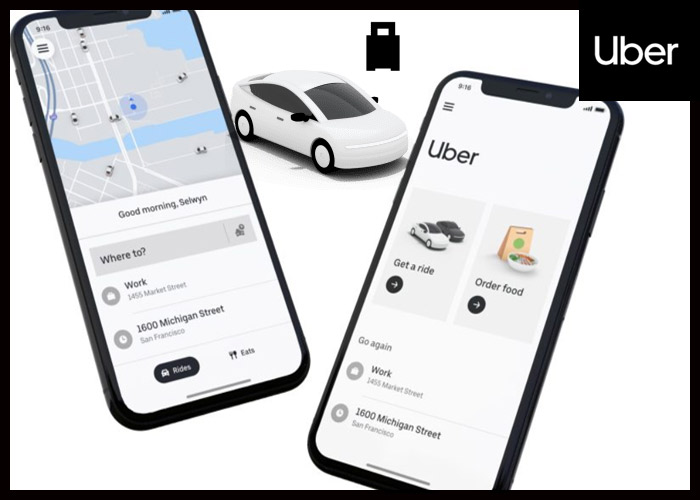California Supreme Court Allows UberEats Driver Lawsuit Over Work Expenses To Proceed
Uber Technologies Inc (UBER) is set to face a significant legal battle in California after the state’s top court ruled on Monday that the company must confront a lawsuit claiming it should have covered work-related expenses for UberEats drivers. The decision could have far-reaching implications for companies in California and is seen as a victory for labor advocates.
In a unanimous ruling, the California Supreme Court stated that UberEats driver Erik Adolph did not forfeit his right under state law to sue on behalf of a large group of workers, despite having signed an agreement to bring his own work-related claims in private arbitration. Adolph filed a lawsuit against Uber in 2019, alleging that the company had misclassified UberEats drivers as independent contractors instead of employees, who are entitled to reimbursement for work expenses under California law.
A unique California law known as the Private Attorney General Act or PAGA empowers workers to sue for employment law violations on behalf of the state, with a portion of any damages awarded going to the state’s labor law enforcement agency. The California Supreme Court clarified that PAGA does not prevent workers from pursuing individual claims through arbitration while simultaneously litigating larger-scale claims in court.
This ruling undermines the significance of a 2022 decision by the U.S. Supreme Court in the Viking River Cruises case, which allowed companies to force individual PAGA claims into arbitration. The California Supreme Court’s decision suggests that California employers may face more large-scale lawsuits as a result.
Responding to the ruling, Theane Evangelis, a lawyer for Uber, stated that it conflicts with the Viking River decision and violates a federal law requiring the enforcement of valid arbitration agreements. Uber is considering its options for appeal.
Michael Rubin, the attorney representing Adolph, believes the ruling could prompt companies to reconsider their practice of forcing workers’ claims into arbitration, given that large-scale PAGA lawsuits can still proceed in court. Rubin also represented the plaintiff in the Viking River case.
Mandatory arbitration agreements are commonplace among more than half of private sector, nonunion U.S. workers. These agreements typically prohibit employees from filing or participating in traditional class action lawsuits. Critics argue that mandatory arbitration discourages workers from pursuing individual claims involving small sums of money, while also noting that workers who do enter arbitration are more likely to lose.
Business groups contend that arbitration is a faster and more efficient process than going to court, enabling workers to recover more compensation. Trade organizations welcomed the Viking River ruling last year, as it prevented plaintiffs in California from circumventing arbitration through PAGA claims.
Various groups, including the U.S. Chamber of Commerce, filed briefs in Monday’s case cautioning the California Supreme Court that a ruling against Uber could encourage meritless lawsuits and pressure companies into settling. However, the court noted that such concerns should be directed to state legislators who possess the authority to amend the law.
Source: Read Full Article

